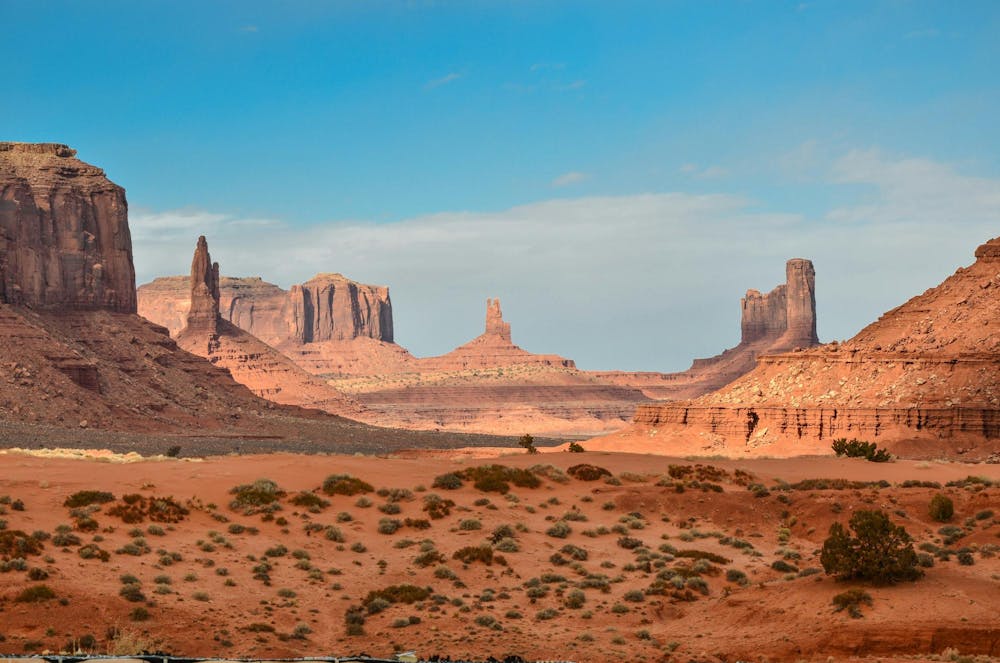“He fell again. He closed his eyes. He didn’t rise. He lay there for the length of the next day, lost in a delirium no one can even imagine, burning and burning.”
- “The Devil’s Highway,” Luis Alberto Urrea
Edgar Martinez was 16 years old when he fell in the Arizona desert, finally succumbing to exhaustion from walking in 100-degree heat for days without rest or water. His knees graced the sun-bleached sand as he grimaced toward the sky, unhurriedly accepting his fate in his final moments. His 1,500-mile journey had come to its conclusion, burning and burning in the arid Arizona desert.
The circumstances around Martinez’s death are far from novel. He left his small town, Cuautepec, Mexico, hoping to find better work to support his girlfriend, Claudia. He told her he would marry her after he came back in five years, with enough money made to build her a house. His love for her and his hope for his future kept him walking on his journey to the United States, but it wasn’t enough to keep him alive.
When I read this passage, I wondered if I would have made the same decisions as Martinez. Could I leave my life behind to embark on a potentially life-ending journey to support those I love? Could I risk spending my final moments, burning and burning in the hot sun, all for a dream of improving the lives of my loved ones? While these remain as thoughts in my head, they are acted upon by countless individuals across the globe who are desperate for change. Year after year, thousands of people bravely traverse deadly terrain to chase a dream of hope, security and peace for themselves and their families. But we don't see it that way on the other side of the border.
We are told these people are “aliens” and “illegals,” grouping them in vast categories, melting their experiences into a faceless and character-deprived mass. This language, used to describe people like Martinez, rids people of their personhood and individuality, essential characteristics that all humans are deserving of. Our political and social landscape has sensationalized the unique experiences of thousands of individuals for quick headlines or political points, making us apathetic to the lives of those around us. We turn away and look inward, absolving ourselves from the responsibility of recognizing these stories as unique and noteworthy.
We cannot continue to allow ourselves to mindlessly take part in this active dehumanization. We must re-humanize one another with the language we use and the stories we share. It has become far too easy to dissociate with the plight of other humans because we have artificially placed people in an “other” category. We must reframe our conversations and spaces to ascribe the rightful individuality and personhood to each person or group we speak of. We must no longer permit the existence of apathy in our personal and communal spaces. This is no simple task, but we can‘t let the lack of action curb our potential progress.
How? Get outside and connect with others. Our worlds can effortlessly become defined by personal desires and the often monotonous nature of daily life, making it essential to strive for connectivity. This means extending the boundaries of our communities — treating strangers with the same respect and dignity we would for those we know. Hold the door open a little longer for the person trailing behind you. Strike up a conversation with the dining hall worker who welcomes you with a smile and a “thank you” every day. Volunteer in your local community, whether in South Bend or elsewhere, to bring about tangible change and offer joy where it’s needed. Get to know people, particularly those you see in a day-to-day manner but never interact with. All it takes is one conversation to open your world to a viewpoint you would have never previously seen or recognized. By entrenching ourselves within our own community, it becomes significantly more challenging to disregard the needs of the greater community.
Martinez’s story escaped the heat of the desert because of the passionate efforts of those dedicated to preserving the humanity present in every individual. We have been granted the opportunity to be proactive in our approach, altering the conditions that make people so inattentive to their surroundings. By being mindful of our language and deepening our ties with our community, we can forge the confines of our imagined borders to be accepting and respective of the experiences of all humans. Martinez was never able to build the house he dreamt of, but by engaging with each other through an empathic understanding, we can begin to assemble the home required to welcome all members of our local and global community.
With hope,
Naasei Lynn
class of 2027
Dec. 14, 2024










